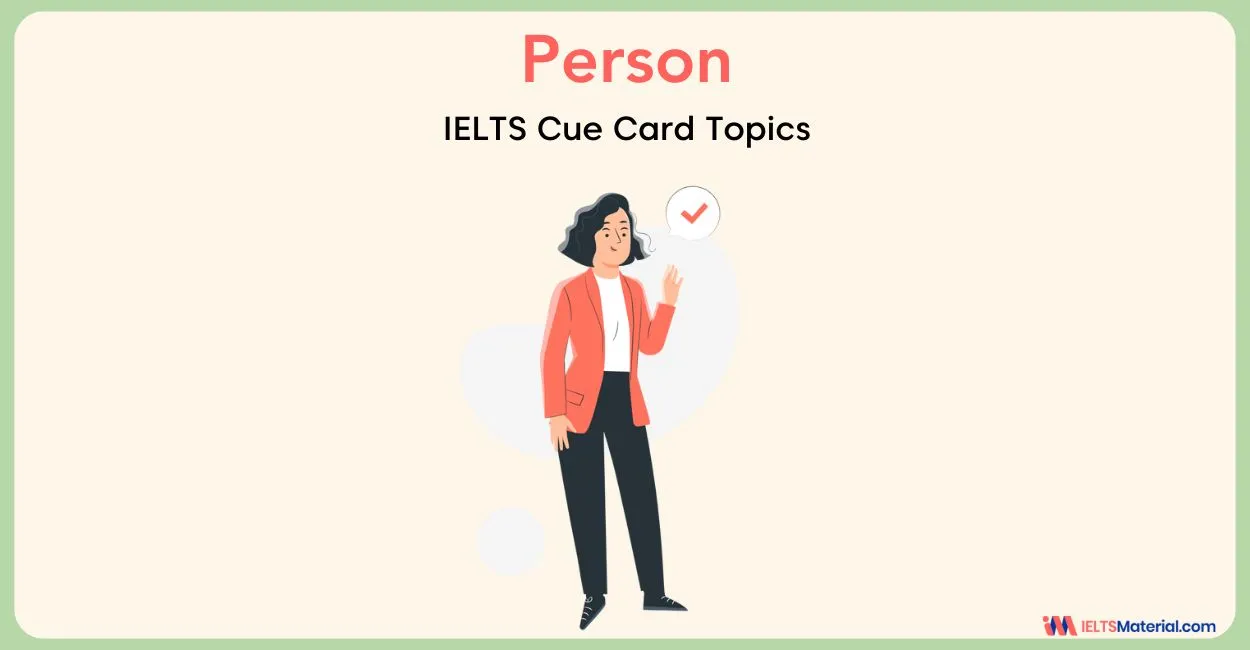Describe A Time You Needed to Use Imagination – IELTS Cue Card Sample Answers
4 min read
Updated On
-
Copy link
Table of Contents

Limited-Time Offer : Access a FREE 10-Day IELTS Study Plan!
This article contains the Describe A Time You Needed to Use Imagination Cue Card Sample Answers.
During Part 2 of the IELTS Speaking test, you will have exactly one minute to prepare and speak on a specific topic. This is the IELTS cue card task. You can learn how to communicate clearly and successfully by reviewing sample answers.
This IELTS cue card gives you an opportunity to share one of your memories of a time you needed to use imagination.
Practise IELTS Speaking Part 2 by referencing the Cue Card Sample Answers below.
Before you start, take a look at the expert tips and tricks below!
Check out other Time – Cue Cards.
For more Cue Cards, click on IELTS Speaking Part 2 | Topics, Questions and Samples Answers.
Describe A Time You Needed to Use Imagination
You should say:
- What the situation was
- Why you needed to use imagination
- What the difficulties were
- And explain how you felt about it.
Sample Answer 1
Well, using the sense of imagination is quite fruitful as it helps reflect our intelligence and creativity. Often, I use this power. And today, I’d like to share one such incident with you. In my school days, I had an inclination towards art and took part in several competitions as well.
- What the situation was
- Why you needed to use imagination
I can vividly recall this one time when I was in 8th standard and my school had organized a painting competition. To be honest, I had forgotten the date and went to school unprepared. The moment I entered the school, my classmates started asking what I had prepared and shared their concepts too. I was dumbfounded hearing that news and went into panic mode. However, I gathered myself together and applied my quick wits.
- What the difficulties were
- And explain how you felt about it.
I brainstormed through ideas, and finally, when the competition started, we were given an hour to complete and submit this painting. Just last week, I had visited the Taj Mahal with my family, so the image of that monument was stuck in my mind. Therefore, I decided to draw it.
If I had a picture of the Taj Mahal in front of me, I could have easily drawn my painting. However, visualizing the wonder and then painting it was extremely tough. I drew the monument, the gardens and the pond.
I completed the painting in an hour and was stunned at how beautiful it appeared to be. Everybody appreciated my efforts, and I got the second prize as well.
Sample Answer 2
- What the situation was
- Why you needed to use imagination
- What the difficulties were
- And explain how you felt about it.
Honestly, I have to admit that I am quite a down-to-earth person and barely either spend time imagining or day dreaming. However, every now and then in school life, imagination is life saver in remembering the knowledge imparted, especially in the subject of History. Indeed, envisaging a chain of images and actions inside my head based on the story or series of events in the book enabled me to acquire new things way more efficiently. For instance, in the time of learning about the history of chocolate, by utilizing the technique of imagine and envisage the image, just like making a movie inside my head, I could remember quickly a quite enormous knowledge and can still recall today. I can tell you that wild chocolate trees can grow easily in the humid Amazon rainforest. Clusters of flowers from these trees turn to seeds. Approximately 20 to 60 cacao beans, which are the ingredient needed to create sweet, soothing and delicious chocolate treats, can be found in the seeds. The Mayan and Aztec cultures both thought that chocolate trees are brought from paradise by God. They used the bean from this divine tree to create a special beverage with a very pleasant odor. Gradually, the treats and drinks made of these beans become prominent and millions of people around the world adore it as the most delicious sweet ever. Making my own film using the imagination in fact helps me to obtain knowledge like a piece of cake.
Vocabulary
- Down to earth person: Someone who is decent, simple, and realistic.
Eg: My principal in the school was a very down to earth person, not at all attracted by the worldly glamour. - Every now and then: from time to time; occasionally
Eg: Every now and then, there are events conducted at the institute. - Impart: make (information) known.
Eg: The faculty members of the institute imparted quality of education to the students. - Envisage: to form a mental picture of (something not yet existing or known).
Eg: I cannot envisage problems in the next twenty years’. - Utilizing: to use something in an effective way.
Eg: My mother gifted me a laptop and advised me to utilize it in a good way. - Enormous: very large in quantity, size, or extent.
Eg: John bought a BMW car by investing an enormous amount of money. - Humid: marked by a relatively high level of water vapour in the atmosphere.
Eg: Summer season in Delhi is hot and humid. - Ingredients: any of the foods or substances that are combined to make a particular dish.
Eg: Baking powder is an important ingredient in baking a cake. - Soothing: having a gently calming effect.
Eg: After a hectic day, she put on some soothing music. - Treat: to act or behave toward in some specified way; to treat someone with respect.
Eg: Meera’s mother in-law treats her like a daughter. - Divine: very pleasing; delightful
Eg: Forgiving is a divine quality - Odour: a smell, often one that is unpleasant
Eg: Mary detected the odour of gas in the house. - Prominent: important; famous.
Eg: One of the most prominent companies visited my institute during the placement drive.
Related Cue Cards:

Start Preparing for IELTS: Get Your 10-Day Study Plan Today!
Recent Articles

Haniya Yashfeen

Kasturika Samanta

Nehasri Ravishenbagam





Post your Comments